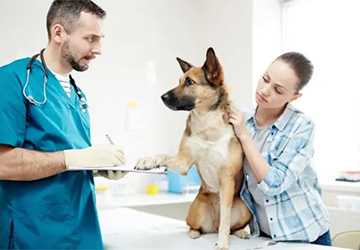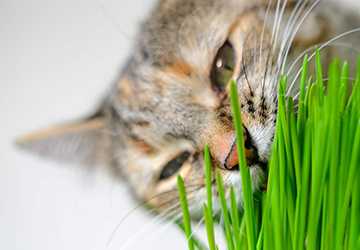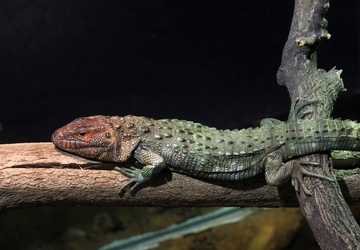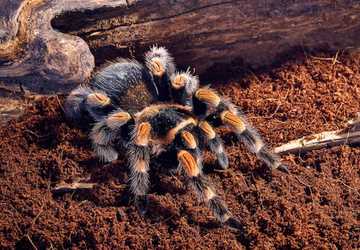Our pets are more than just animals; they are beloved members of our families. We want the best for them, and an essential aspect of their health is their diet. Proper nutrition is vital to keep your furry friend happy and healthy. As with humans, a balanced diet is the cornerstone of your pet's overall health. But managing your pet's diet can be complicated, especially given the many options available. To help you with this critical aspect of pet care, we've compiled five tips for keeping your pet's diet nutritionally balanced.

Consult a veterinarian
The first and most crucial step in controlling your pet's diet is to consult your veterinarian. Since you will seek medical care for a health problem, your pet's health needs to be checked regularly by a qualified veterinarian. They can provide customized recommendations for your pet's specific nutritional needs based on age, breed, activity level and existing health conditions.
Veterinarians are familiar with the nutritional needs of different animals. For example, dogs and cats have different dietary needs. Dogs are omnivores and require a balanced diet containing protein, carbohydrates, and essential vitamins and minerals. Cats, on the other hand, are pure carnivores, which means they need higher levels of protein in their diet. Your veterinarian can develop a detailed nutritional plan based on these factors to ensure a balanced diet for your pet.
Additionally, your veterinarian can identify any allergies or sensitivities your pet may have. Some animals cannot tolerate particular ingredients, such as grains or specific proteins. Identifying and avoiding these allergens is critical to your pet's health.
Choose quality pet food.
Once you’ve consulted with your veterinarian and understand your pet’s specific nutritional needs, it’s time to choose the right pet food. High-quality animal feed is essential for a balanced diet. Look for brands that favour natural ingredients and avoid fillers like corn and artificial additives. Reading labels is crucial. The first few ingredients listed on the label are the most important because they make up most of the food.
Choose pet foods with real meat, poultry or fish as the main ingredients. Avoid using vague terms like “meat by-products” or “animal products.” These may contain low-quality and uncertain protein sources. Additionally, consider brands that offer multiple formulas for different life stages, such as B.
Regarding pet food, it’s essential to balance convenience and nutritional value. Although homemade diets are an option, they can be challenging regarding healthy balance. Therefore, it is crucial to consult with your veterinarian if you decide to go this route.
Part control
Portion control is often overlooked when it comes to your pet's diet. Providing the right amount of food for your pet is just as important as providing the correct type. Overeating can lead to obesity, which is linked to various health problems, including joint problems and diabetes. Poor nutrition, on the other hand, can lead to malnutrition and other health complications.
First, follow the feeding guidelines on the pet food package. However, please remember that these are general recommendations and may not be suitable for all pets. Your veterinarian can help you determine the ideal portion size based on your pet's age, activity level, and overall health.
Establish a feeding routine to maintain nutritional balance and ensure portion control. Pay attention to your pet's calorie count and consider using a measuring cup to ensure accuracy. As your pet's age or activity level changes, consult your veterinarian to adjust portion sizes accordingly.
Provide fresh water
In addition to proper food and portion control, water is vital to your diet and a must-have for your pet. Your pet should have access to fresh, clean water at all times. Proper hydration is essential for digestion, nutrient absorption, and overall health.
Some pets are picky about water sources, and sometimes, just providing a bowl of clean water a day is enough. To encourage your pet to drink more water, consider using a water fountain, which may be more attractive to cats. Clean and refill water bowls regularly to prevent contamination.
If your pet is not drinking enough water, contact your veterinarian, which may indicate an underlying health problem. Your veterinarian may recommend that you increase your pet's water intake or give him extra fluids.

Monitor your pet's health.
Finally, regularly monitoring your pet's health is essential to ensure its diet meets its needs. Keep a close eye on your weight, as sudden changes may indicate a health problem or an imbalanced diet. Check their coat and skin regularly to look for any problems.
Please pay attention to their energy levels and behaviour. Pets that are active and playful are generally healthy animals. If you notice behavioural changes such as lethargy, changes in appetite, or excessive thirst, contact your veterinarian immediately. These may be signs of health problems that may require dietary changes.
Introduce diversity appropriately
While consistency is crucial in your pet's diet, a little variety can be beneficial but should be done in moderation. Providing your pet with various foods can help prevent dietary boredom and give them a broader range of nutrients. However, sudden changes in your pet's diet may cause digestive problems. Therefore, it is essential to change your eating habits gradually.
You can occasionally add safe and healthy human foods, such as small pieces of lean meat, vegetables, or fruit, to your pet's diet to add variety. Ensure any human food you introduce is pet-safe, as some can be toxic to animals. Your veterinarian can help you make the right choice. Additionally, consider rotating between different flavours or types of commercial pet food from the same well-known brand to add variety without damaging your pet's digestive system.
Remember, balance is essential; keep your choices in moderation, as monitoring your pet's food intake can be difficult. Consult your veterinarian to determine the best way to add variety to your pet's diet.
Conclusion
Managing your pet's diet is an essential aspect of being a responsible pet owner. To maintain a nutritional balance in your pet's diet, consult your veterinarian, choose high-quality pet food, control portion sizes, provide fresh water, and monitor your pet's health regularly. Your furry friend's health depends on the care and attention you give to his diet. By following these essential tips, you can ensure your pet lives a healthy and happy life with your love and care.
















